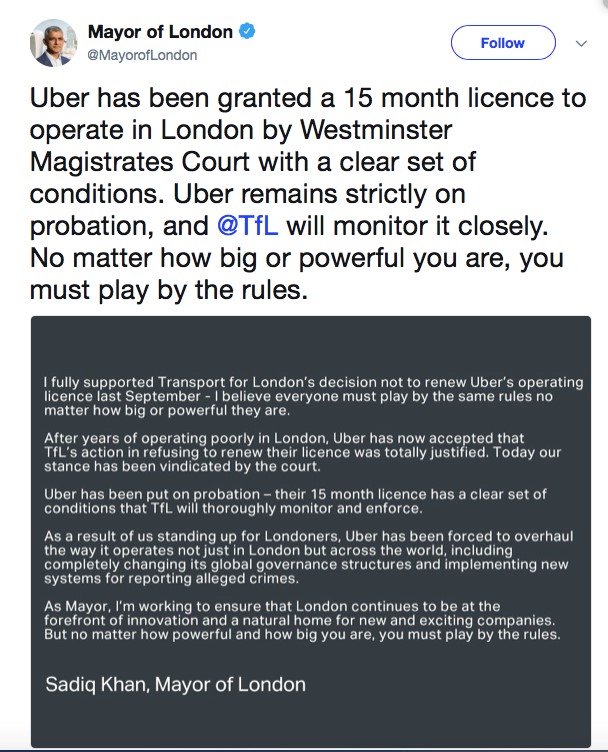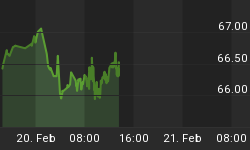Uber just won a big victory in London over license renewal, but this is only one of Uber’s many challenges on a fiercely competitive playing field.
London is one of Uber’s key markets, but a drawn-out battle over renewing its license with the city had put its UK longevity into question, and opened the door wider for its rivals. But the good news came this week, when Uber finally won its appeal to continue operating in the city.
Uber has around 3.5 million riders and 45,000 drivers in London, and the city is one of its most lucrative markets—even more so since it has withdrawn from China, Russia and Southeast Asia.
The license is only probationary and requires renewal every 15 months, but comes as a major relief for investors who saw London’s transport authority (TfL) decline to renew Uber’s five-year license last September, saying the ride-hailing giant wasn’t "fit and proper" to hold a private hire vehicles operator license, citing several concerns including how it responded to serious crimes.
“We are pleased with today’s decision. We will continue to work with TfL to address their concerns and earn their trust, while providing the best possible service for our customers,” Tom Elvidge, general manager of Uber in the UK, told reporters after the verdict.
For Uber’s new CEO, Dara Khosrowshahi, former CEO of travel company Expedia, the Uber victory should make investors quite happy with him. Replacing former CEO Travis Kalanick, he was ready to do whatever was necessary to convince the court that Uber's bad days belonged firmly in the past.
Khosrowshahi apologized for past mistakes in London and asked the authorities to work with the company to "make things right." Related: The Exclusive Clubs Controlling Crypto Markets
Uber has also agreed to several other conditions from TfL, including a requirement to report all serious safety complaints, training existing and new Uber drivers on car-sharing safety, and inform TfL of any major data breaches.
Last year, TfL complained about the company's approach to reporting serious driver offenses. It contributed to the decision with its record on driver medical and safety checks, and the use of its secret "Greyball" software to dodge transport officials.
London Mayor Sadiq Khan took the opportunity to remind Uber on Twitter that “No matter how powerful and how big you are, you must play by the rules.”

(Click to enlarge)
Of course, a victory for Uber is a defeat for the Licensed Taxi Driver's Association (LTDA), whose lawyer Gerald Gouriet warned the court about the prospect of an “Uber in sheep’s clothing”.
“The justice system has failed Londoners today and let an aggressive multinational corporation win. Uber is not a fit and proper operator and the LTDA will be consulting its lawyers as to how we can hold it to account and keep streets safe for Londoners, ”said Steve McNamara, General Secretary of the LTDA, openly pointing his disappointment with court’s decision.
Backed by Goldman Sachs and BlackRock and valued at more than $70 billion, Uber has faced protests and restrictions around the world. Besides these issues in London, Uber had a few scandals about conduct in its head office, the treatment of staff and allegations of using its software to evade regulators in other cities.
Related: Trump Back Tracks On Foreign Investment Limitations
Uber investors will be looking at the London decision as a potential precursor of what is to come from authorities elsewhere in the UK, where Uber is facing similar challenges.
In the meantime, the London license victory only slightly eases the specter of competition.
Not only has rival Lyft’s valuation surged to $15 billion, still far behind Uber but moving quickly ahead, but small startups are proving pesky. European-based Taxify upped the ante earlier this month with a Daimler-led fundraising effort and a $1-billion valuation.
By Damir Kaletovic for Safehaven.com
More Top Reads From Safehaven.com:

















